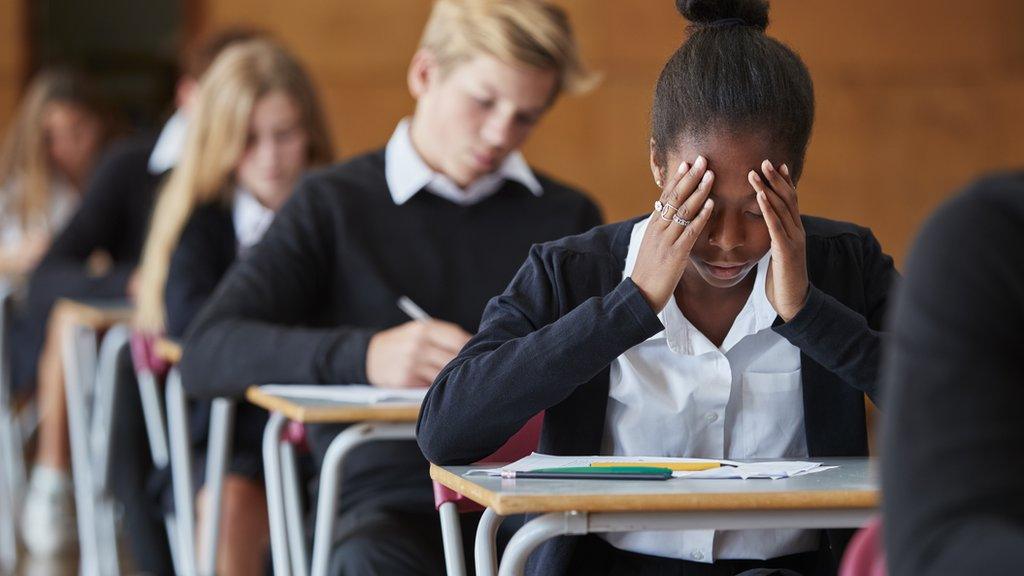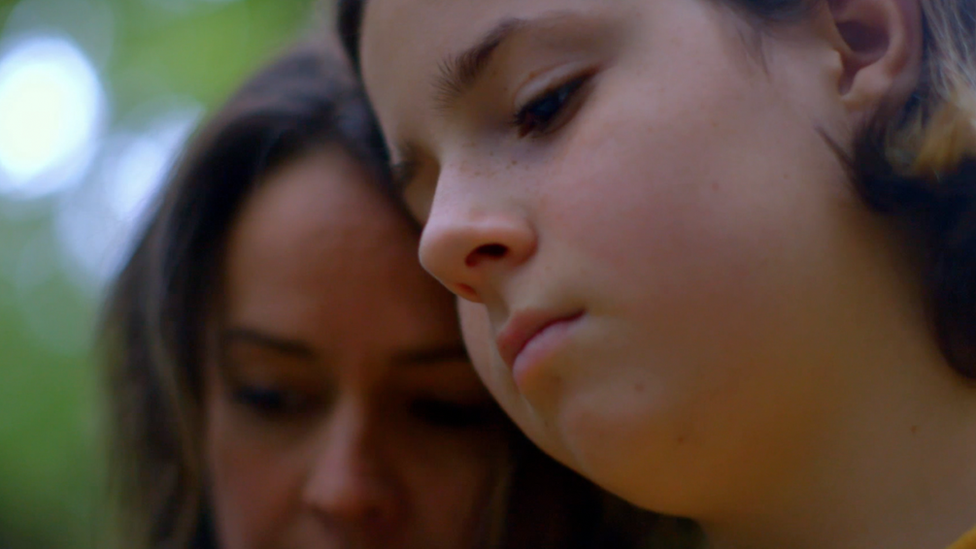Too many children 'not being treated for mental health problems'
- Published

Only a third of children and young people with mental health conditions receive the treatment they need from the NHS, a committee of MPs says.
Many are turned away because they are not ill enough, others face long waits and it could be years before that changes, its report found.
Getting the right staff in the right place was a priority, it said.
And it added the group would keep a close eye on whether the government's new 10-year plan was being implemented.
The plan was unveiled by Theresa May and NHS England bosses this week, setting out a vision for the health service which focused on preventing ill health.
As part of the plan, mental health, GPs and community care received the biggest funding increases.
But the Public Accounts Committee's report, external into mental health services for children and young people said there was still much progress needed in many areas.
With one in eight youngsters in the five to 19-year-old age group having a mental health disorder and an increasing number of five to 15-year-olds suffering from an emotional disorder, currently 5.8%, mental health issues are affecting the life chances of young people, the report said.
Yet there were "unacceptably long waits for treatment" and two-thirds of young people in need of treatment were turned away.
Over the next three years, the committee recommended that NHS England provide annual updates on:
the number of young people referred for treatment, how long they had to wait and the human cost to those who did not receive treatment
progress in setting up mental health support teams in schools
updates on expanding the mental health workforce for children and young people
action to tackle mental health problems earlier in children and young people

Meg Hillier MP, chairwoman of the committee, said children and young people were currently being "failed by the NHS".
"Provision is far below required levels and many people who do get help face long waits for treatment.
"This can be devastating for people's life chances; their physical health, education and work prospects," she said.
And she urged the NHS to accelerate efforts to ensure it has "the right staff with the right skills in the right places".
"Effective action on prevention and early intervention can help young people more quickly, as well as relieve pressures on health services.
"We will be keeping a close eye on the real-world impact of the measures proposed in the government's 10-year plan for the NHS," Ms Hillier said.
'Tackle problems early'
Anne Longfield, the Children's Commissioner for England, said the government should be more ambitious about the reforms needed to ensure all children received the support they needed.
"The NHS 10-year plan will improve access to CAMHS (children and adolescent mental health services) for more children, but until the government can guarantee that all children will get the specialist help they need, every year thousands of children will still miss out on treatment.
"That will require policies like an NHS-funded counsellor in every school to identify and tackle problems early, and closer parity between what is spent on adult and child mental health services."
- Published22 November 2018

- Published7 October 2018

- Published9 October 2018

- Published24 September 2018

- Published11 September 2018
